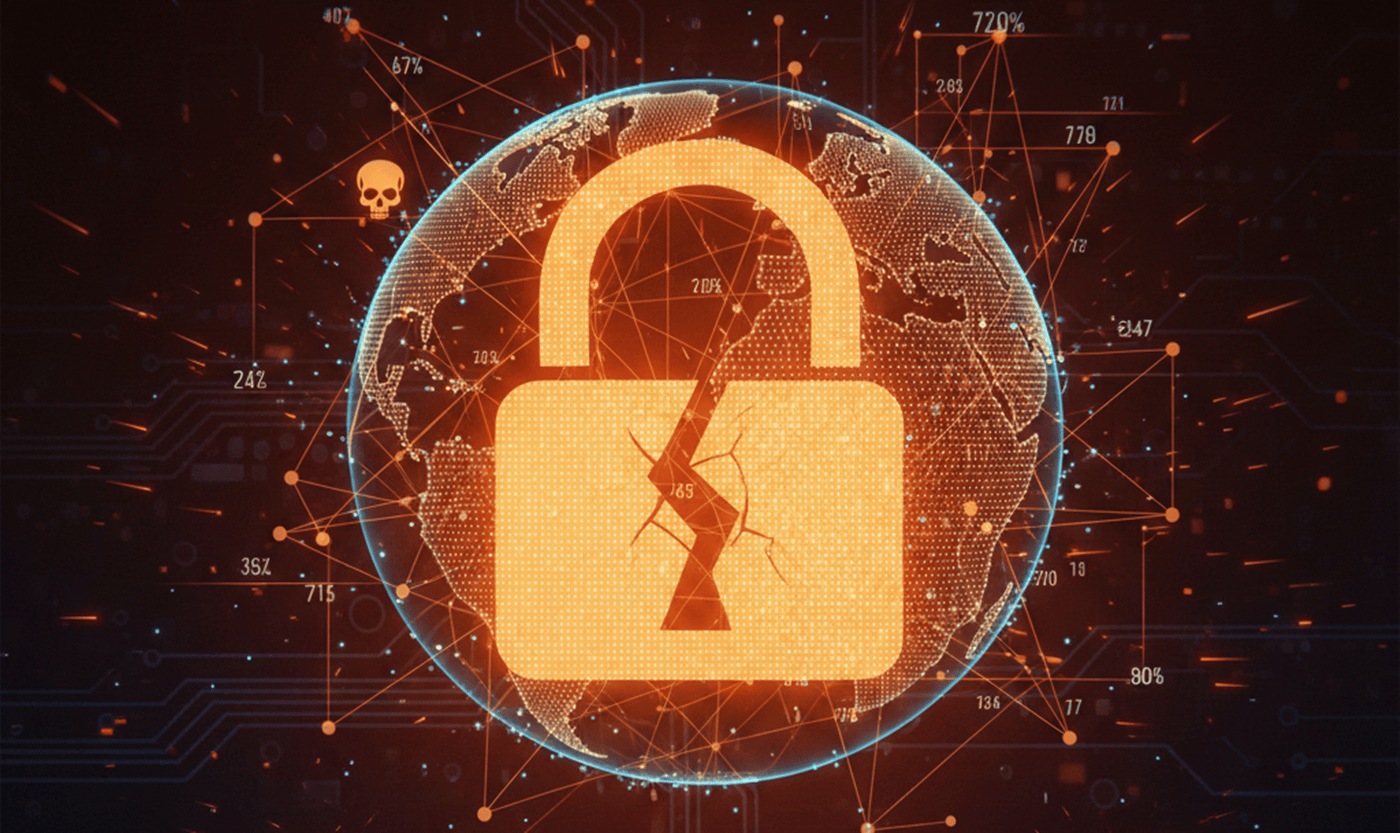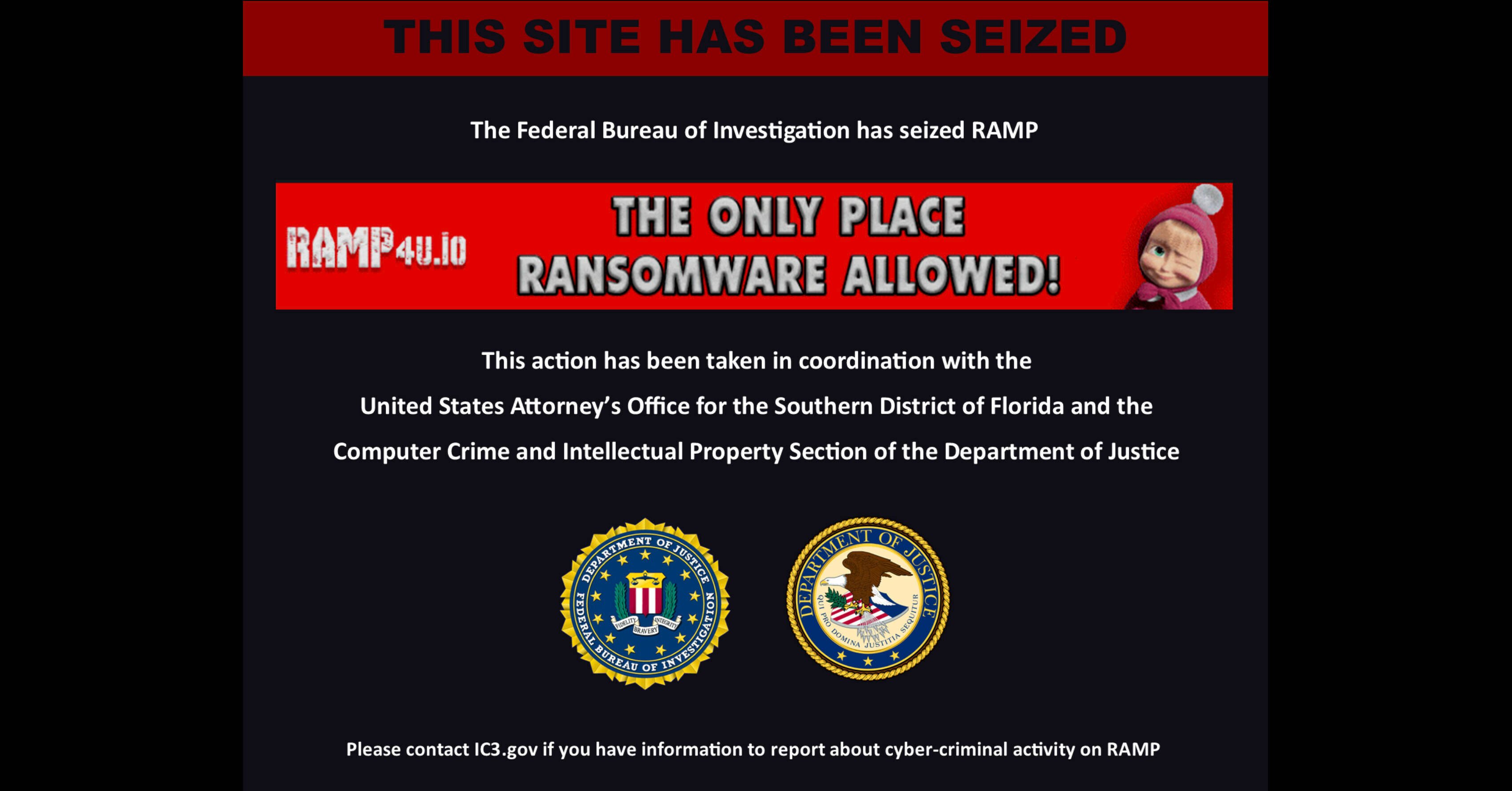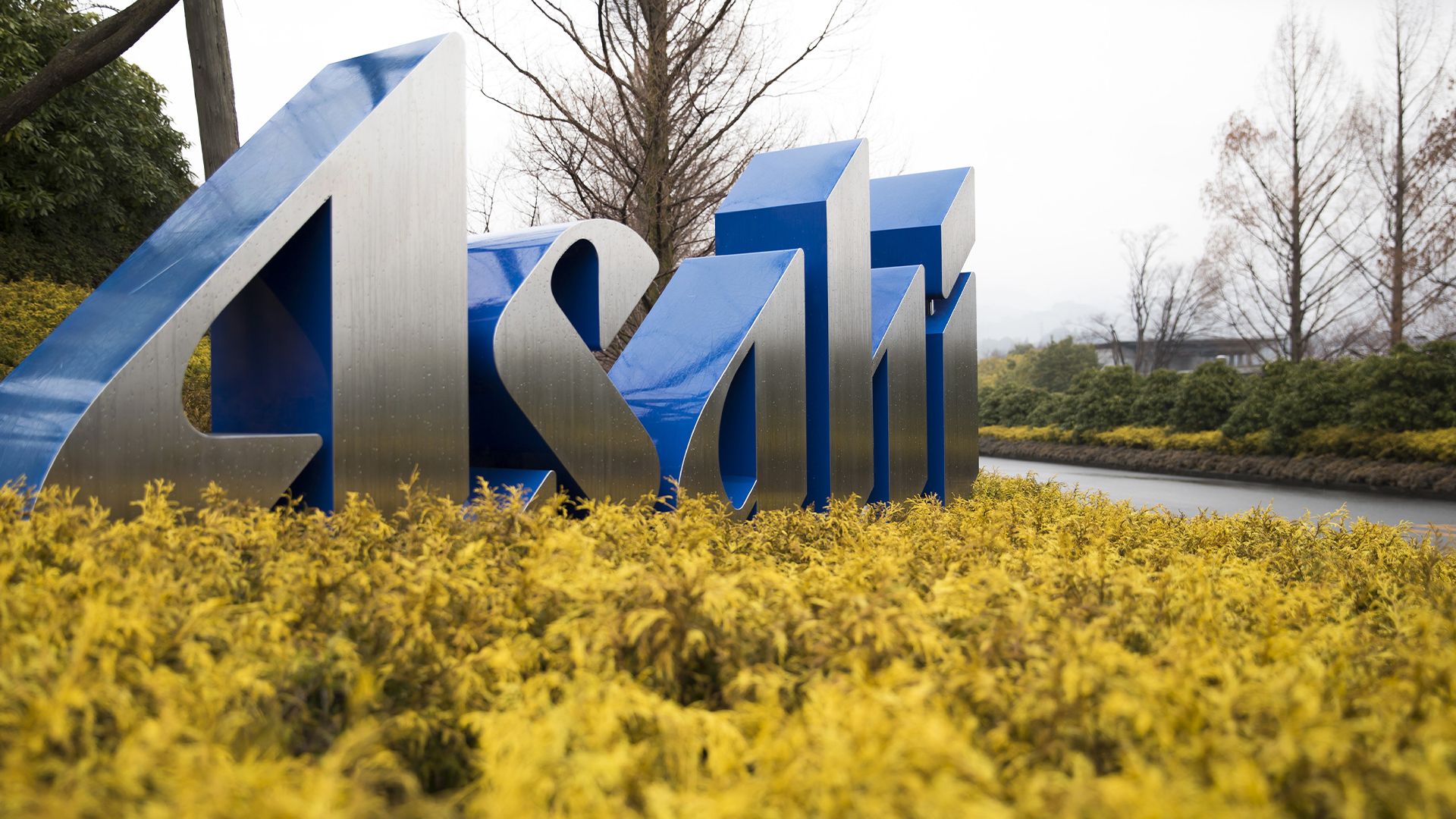#ransomware
#ransomware
[ follow ]
#data-breach #cybercrime #cybersecurity #extortion #incident-response #insider-threat #money-laundering
Information security
fromComputerWeekly.com
22 hours agoRansomware gangs focus on winning hearts and minds | Computer Weekly
Ransomware gangs are professionalizing, scaling affiliate models, recruiting insiders and cyber professionals, and offering larger commissions and better OpSec to enable more successful attacks.
Information security
fromTechCrunch
5 days agoFintech firm Marquis blames hack at firewall provider SonicWall for its data breach | TechCrunch
Marquis attributes an August 2025 ransomware attack to credential exposure from its firewall provider SonicWall's cloud backup breach and plans to seek compensation.
fromComputerWeekly.com
1 week agoBroken decryptor leaves Sicarii ransomware victims adrift | Computer Weekly
A coding error, possibly introduced thanks to over-reliance on artificial intelligence (AI) vibe coding tools, has rendered an emergent strain of ransomware an acutely dangerous threat, according to researchers at Halcyon's Ransomware Research Center (RRC). The Sicarii ransomware-as-a-service (RaaS) operation emerged from the cyber criminal underground in December 2025, when it started advertising for affiliates on the dark web.
Information security
Information security
fromThe Hacker News
1 week agoMulti-Stage Phishing Campaign Targets Russia with Amnesia RAT and Ransomware
Multi-stage phishing campaign targets Russian users, using social-engineered documents, cloud-hosted loaders, Defender-disable tricks, and deployments of Amnesia RAT and ransomware.
fromDataBreaches.Net
2 weeks agoHHS OCR comments on its 2026 priorities - DataBreaches.Net
OCR continues to execute its enforcement mission under its statutory and regulatory authorities regarding civil rights, exercise of conscience, and health information privacy and security, and breach notification. OCR continues to investigate complaints filed, to conduct compliance reviews, and to review breaches of unsecured protected health information. OCR will be responsive to the HIPAA trends and compliance issues within OCR's jurisdiction that are affecting the public and the regulated industry.
Privacy professionals
fromComputerWeekly.com
3 weeks agoBusiness leaders see AI risks and fraud outpacing ransomware, says WEF | Computer Weekly
Midway through a decade that is coming to be defined by the runaway acceleration of technological change, the threat of ransomware attacks seems to be dropping down the agenda in boardrooms around the world, with C-suite executives more concerned about growing risks arising from artificial intelligence (AI) vulnerabilities, cyber-enabled fraud and phishing attacks, disruption to supply chains, and exploitation of software vulnerabilities.
Information security
Information security
fromDataBreaches.Net
3 weeks agoCrazyHunter ransomware escalates with advanced intrusion tactics, six Taiwan healthcare victims confirmed - DataBreaches.Net
CrazyHunter ransomware, a Go-based Prince fork, has rapidly evolved with advanced intrusion and evasion capabilities, targeting Taiwanese healthcare providers and leaking stolen data.
France news
fromDataBreaches.Net
3 weeks agoBasketball player arrested for alleged ransomware ties freed in Russia-France prisoner swap - DataBreaches.Net
Daniil Kasatkin, a Russian basketball player accused of negotiating for a ransomware gang, was freed in a prisoner exchange between Russia and France.
Information security
fromThe Hacker News
3 weeks agoCybersecurity Predictions 2026: The Hype We Can Ignore (And the Risks We Can't)
Organizations must prioritize evidence-based cybersecurity predictions focusing on targeted ransomware, internal AI-related risks, and skepticism about AI-orchestrated attacks.
fromTheregister
3 weeks agoRansomware attacks kept climbing in 2025
Trackers keeping an eye on ransomware leak sites logged more than 8,000 claimed victims worldwide in 2025, a rise of more than 50 percent compared to 2023. The counts come from outfits watching dark web shaming pages such as Ransomware.live and RansomLook.io, so they only include cases where crooks decided to post receipts. Plenty of victims, Emsisoft says, will have paid up, recovered, or kept quiet without ever appearing on a leak site.
Information security
fromTheregister
1 month agoFBI dismantles alleged $70M crypto laundering operation
US feds have dismantled a crypto laundering service that they say helped cybercrooks wash tens of millions of dollars in dirty digital cash, seizing its servers and unsealing charges against an alleged Russian operator. The FBI, working with cops in Europe and a grab bag of state and federal agencies, announced this week that it has taken down the infrastructure behind E-Note, an unlicensed virtual currency exchange accused of acting as a financial rinse cycle for ransomware crews, account takeover gangs, and other online criminals.
US news
fromZDNET
1 month agoStill running Windows 10? Here's why that's a bad idea
Hundreds of millions of computers worldwide are still running Windows 10, months after the one-time king of PC operating systems officially passed its end-of-support deadline. If you're responsible for one of those machines and you aren't ready to upgrade to Windows 11, you can sign up today for an Extended Security Updates (ESU) subscription -- consumers can get those updates free through October 2026, as I explain here: How to get free Windows 10 security patches on your PC - from now to October 2026.
Information security
Information security
fromAbove the Law
1 month agoIncident Response Has Become A Law Firm Survival Skill - Above the Law
Law firms face targeted cyberattacks; preparedness and practiced incident response, clear leadership, and fast decisions prevent compounded damage and regulatory, ethical, and malpractice risks.
Information security
fromThe Hacker News
1 month agoSTAC6565 Targets Canada in 80% of Attacks as Gold Blade Deploys QWCrypt Ransomware
STAC6565 (Gold Blade/RedCurl) targeted Canadian organizations, combining data theft and selective ransomware operations using custom tools such as QWCrypt and RedLoader.
fromTheregister
2 months agoAsus supplier hacked by Everest gang, loses 1 TB of data
In a post on its dark web leak site, seen by The Register, Everest said: "Files contain this information and much more: Binary segmentation modules, Source code & patches, RAM dumps & memory logs, AI models & weights, OEM internal tools & firmware, Test videos, Calibration & dual-camera data, Image datasets, Crash logs & debug reports, Evaluation & performance reports, HDR, fusion, post processing data, Test APKs, experimental apps, Scripts & automation, Small config binary calibration files."
Information security
fromTechzine Global
2 months agoManufacturing sees less data encryption in cyberattacks, but still pays
Encryption rates in ransomware attacks on manufacturing companies have fallen sharply. Only 40 percent of attacks resulted in actual encryption, the lowest level in five years and a significant drop from 74 percent last year. However, attackers are compensating for this with a different tactic: extortion without encryption rose from 3 percent in 2024 to 10 percent in 2025. They are increasingly relying on stolen data as a means of pressure.
Information security
Information security
fromComputerworld
2 months agoWhy security needs a step change to thwart cyber attacks amid surging innovation
Enterprises must implement comprehensive vulnerability management—including automated scanning, prompt patching, and scalable penetration testing—to prevent preventable breaches and reduce attack surfaces from AI adoption.
fromIT Pro
2 months agoSimulating attacks: how to use tabletop exercises in incident response
Among the benefits, tabletop exercises simulate a real-life attack so firms can put incident response plans to the test, including decision-making processes, communications and technical measures. When done well, tabletop exercises can expose blind spots and help response teams "build the muscle memory needed to act fast when the real thing hits", says Adam Harrison, managing director in the cyber security practice at FTI Consulting. So what types of tabletop exercises are available and how can you use them in your business?
Information security
World news
fromComputerWeekly.com
2 months agoRussian money launderers bought a bank to disguise ransomware profit | Computer Weekly
A UK-linked billion-dollar money-laundering network bought a Kyrgyz bank to convert criminal proceeds into cryptocurrency and evade sanctions supporting Russia's war in Ukraine.
fromTheregister
2 months agoUS, UK, Australia sanction Lockbit gang's hosting provider
Cybercrime fighters in the US, UK, and Australia have imposed sanctions on several Russia-linked entities they claim provide hosting services to ransomware gangs Lockbit, BlackSuit, and Play. The sanctions target an organization called "Media Land," an entity that the US Department of Treasury describes as a provider of hosting services to "criminal marketplaces and ransomware actors" and which allowed its infrastructure to be used for "multiple distributed denial-of-service (DDOS) attacks against U.S. victim companies and critical infrastructure."
Information security
fromFast Company
2 months agoWhy replication can't fix the ransomware problem
Ransomware doesn't knock on the front door. It sneaks in quietly, and by the time you notice, the damage is already done. Backups, replication, and cloud storage help recover from ransomware, but when it strikes, these products may not be enough. You copy your data and ensure copies are recoverable when needed. Replication is often viewed as the gold standard of protection. It is fast, efficient, and seems like an easy answer. Two common types of replication are in use today.
Information security
fromTheregister
2 months agoNHS supplier ends 18-month probe into cyberattack
In a statement published this week, Synnovis said the investigation "took more than a year to complete because the compromised data was unstructured, incomplete and fragmented, and often very difficult to understand." It added that specialist incident response teams had to use "highly specialized platforms and bespoke processes" to work through terabytes of jumbled information and identify which healthcare providers' patients were affected.
Healthcare
Information security
fromThe Hacker News
2 months agoGootLoader Is Back, Using a New Font Trick to Hide Malware on WordPress Sites
GootLoader has resurfaced, using custom WOFF2 glyph substitution and WordPress comment endpoints to deliver XOR-encrypted ZIP payloads, enabling rapid domain controller compromise and ransomware hand-offs.
[ Load more ]






























